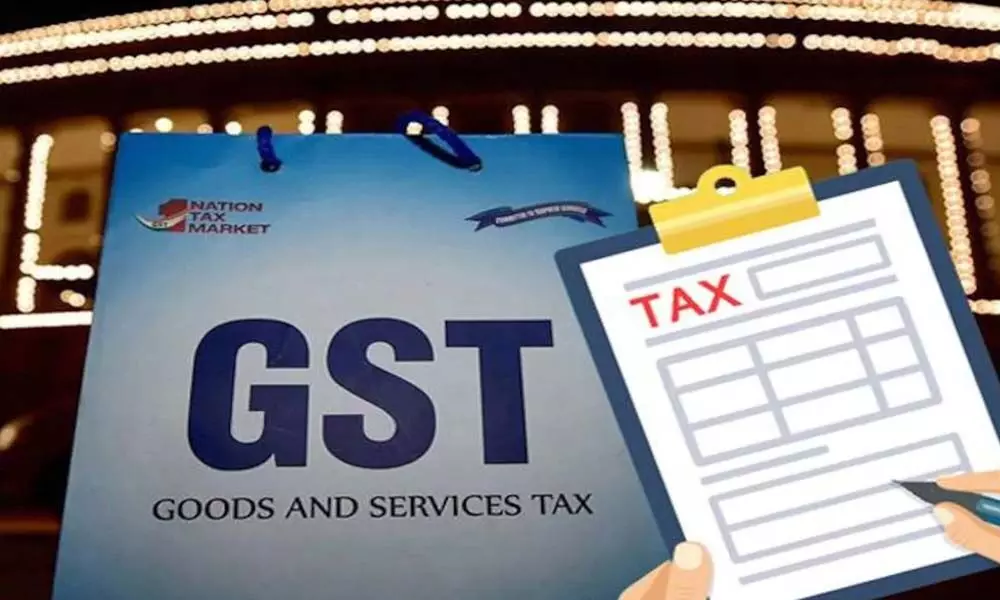Amendment in CGST Act will fuel business growth
The proposed amendment in section 7 of the CGST Act, 2017 will bring activities or transactions involving supply of goods or services by clubs, societies, and resident welfare associations
image for illustrative purpose

Finance Minister has proposed certain amendments in the Central GST Act, 2017 and Integrated GST Act, 2017 in the Union Budget 2021; and these amendments will come into effect from the date when the same are notified, as far as possible, concurrently with the corresponding amendments to the similar Acts passed by the States and Union Territories. Important amendments are as follows:
CGST ACT 2017
• The proposed amendment in the section 7 of the CGST Act, 2017 will bring activities or transactions involving supply of goods or services by clubs, societies, resident welfare associations, etc. to their members, or constituents or vice versa, for a consideration, into GST net as they will be deemed to be two separate persons, retrospectively from July 1, 2017.
• The proposed amendment in the section 16 will bring in a new condition for availing the Input Tax Credit (ITC) to ensure that the ITC is availed only when GST is paid and details thereof, are uploaded on the GSTN portal.
• The proposed amendment in the section 35 will bring a relief to the registered tax payers by getting rid of the auditing of their books and accounts by a chartered accountant or a cost accountant.
• The proposed amendment in the section 44 will do away with filing the GSTR-9C, in consonance with the proposed amendment in section 35, ibid.
• The proposed amendment in the section 50 is a long-awaited relief, with retrospective effect from July 1, 2017, from paying interest on delayed payment of gross tax liability. The taxpayers will now be required to pay interest on net cash liability, only. This is in consonance with the decision taken in the 39th GST Council Meeting.
• The proposed amendment in the section 74 will delink the seizure and confiscation proceedings under the sections 129 & 130 from the proceedings for demand of tax under the section 74.
• The proposed amendment in the section 75 seeks to consider the tax payable on outward supplies shown in the GSTR-1 as 'Self - assessed tax', even if the same is not included by the tax payer in GSTR-3B.
• The proposed amendment in the section 83 will bring any person who retains the benefits of transaction involving fraudulent availment of ITC and at whose instance such transaction was carried out, within the purview of the section 83, and provide for validation of provisional attachment for the entire period i.e., starting from beginning of proceedings till expiry of a period of one year from the date of order for provisional attachment.
• The proposed amendment in the section 107 will make it compulsory to pay 25 per cent of the penalty for filing any appeal against the order passed under sub-section (3) of section 129 of the CGST Act, 2017 for detention or seizure of goods or conveyance during transit.
• The proposed amendment in the section 130 will delink the confiscation proceedings of goods or conveyance and penalty under the Section 130 from the proceedings of detention, seizure and release of goods of tax under the section 129.
• The proposed amendment in the section 151 will empower the jurisdictional commissioner to call for information from any person relating to any matter. At present, the commissioner may call upon the concerned persons to furnish the specified information only.
• The proposed amendment in the section 152 will provide for an opportunity of being heard to the person concerned, before using any information provided by him. This is in consonance with the principles of natural justice to protect the rights of tax payers.
IGST ACT 2017
By the proposed amendment in the section 16 of the IGST Act, 2017, supplies to a Special Economic Zone developer or a Special Economic Zone unit will be zero rated, only if these are for authorised operations; it will restrict the zero-rated supply on payment of IGST only to a notified class of taxpayers or notified supplies of goods or services, and the refund of IGST on export of goods will be linked to foreign exchange remittance, akin to that of export of services.
(The authors are former Pr. Chief Commissioner, CGST, Mumbai and former Additional Director, DGGI, Mumbai respectively)
Subhash C Varshney & MN Verma

